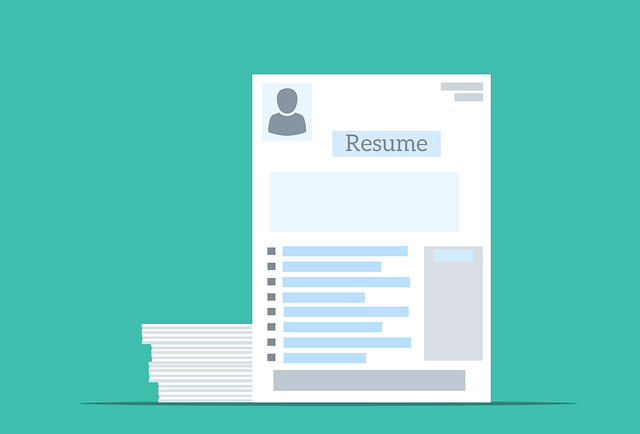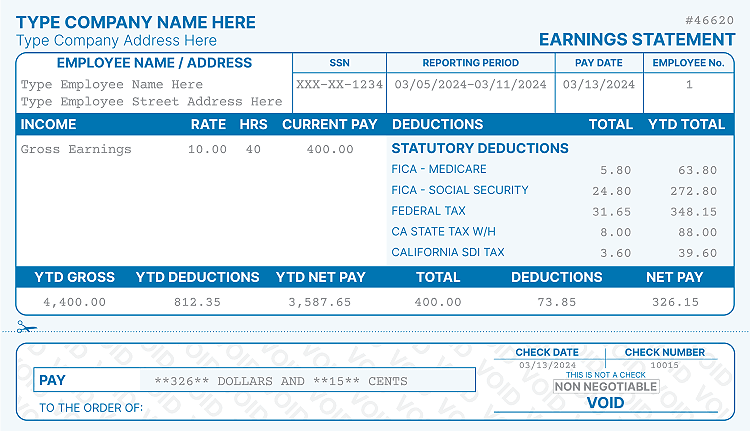Hiring for Small Businesses: A Guide
Hiring new employees can always be a struggle, especially for small businesses. When looking for the right person, there are some steps you have to take to ensure that you'll get them. You'll need to learn about a few things: how to write an effective job description, understand your small business's branding, finding great candidates, what you're looking for in a new employee, and more.
Once you understand these concepts, you'll be ready to make your job posting and to accept applications from some of the best candidates. Keep reading to learn more about the hiring process and the dos and don'ts of job postings!
Getting your business ready for the hiring process
Before starting the recruiting process, you should ensure that your small business needs more employees. Hiring employees is not always necessary, and there's plenty to do when it gets here. But before we begin to talk about the legal requirements, it's worth thinking about hiring someone.
Read: S Corp vs C Corp & Pros and cons of a LLC
Hiring Tips for Small Business Owners

1. Write an effective job description
Many hiring managers rush into writing quick job descriptions to get a job posted. This is not an effective way for small businesses to attract qualified candidates. On the other hand, a clear and well-thought-out job description is an excellent opportunity to recruit the right candidates to join your small company.
Besides showing the advantages, you will get a good job description in a competitive market. As well as describing your role and responsibility, ask your hiring manager to write a short introduction that outlines your company brand. This can help to find employees that resonate with your brand and feel a connection to it.

2. Understand what to put into a description
Since this is likely the first thing potential employees are seeing about your business, you really want to focus on this step. First, remember to include some important things, such as:
-
Job title
-
Starting Range
-
Responsibilities
-
Hours
-
Full-time, part-time or other
-
In-house, remote, or hybrid
-
Company goals and branding
-
Requirements (any degrees, education, language, and more)
-
A description of their everyday work
Including all of these things will lay out exactly what your potential employee needs to have and do. This will also help you to ensure that you really do need a new employee or just a temporary independent contractor.

3. Identify what you're looking for
In the case that you get any responses, you should be ready to identify what you're looking for in an employee. Some things you might want to consider are attitude, eagerness to learn, experience, and motivation. While it may not be easy to measure these things, you'll get a better idea of what it looks like during the interview phase.
Take into account how much effort was put into their application. Was it low effort, or does it look like they really put thought into it? Does it seem like they read the full job description, or did they just skim through it?
Some employers hide sentences that they want to see on an application in their descriptions. For example, you can say, "Make sure to say your favorite basketball team on your cover letter, so we know you read it." This can help you to ensure that potential employees are fully reading your description and have good attention to detail.
4. Identify what you have compared to bigger companies
A lot of smaller businesses can't afford to pay the highest salaries or give the best benefits to their employees. But that doesn't mean you don't have other qualities that may be attractive to the best employees. You may be able to provide good experience and flexibility to the right employee that will help them productivity-wise.
Or, you might be able to offer a more relaxed work environment that's located closer to them. Also, remember that an employee who is eager to learn and grow with your business can be better than someone who is experienced!

5. Widen your range
While you may have a specific image of the perfect employee, don't let that exclude other amazing workers who don't necessarily match what you're thinking. Look for innovators, people full of creativity and ready to get out there and change the world.
These types of people can bring lots of business to your small business through new ideas for products and marketing. Many old-school companies might not appreciate this type of person, but you can provide them with more creative freedom in a small business. That would be an excellent reason for them to work for a small company rather than a big one.

6. Ask questions that are out of the ordinary
There are so many amazing questions that employers can ask potential candidates, but instead, they choose to ask things like "tell me about yourself" or "what is your biggest weakness." While those can be good questions to clue you into someone's personality, they are also designed to trip them up.
Instead, you can ask them questions like "What type of work environment do you work best in?" or "Tell me about a time when you had to be a leader over others." This can give you insight into if they are a good fit for your small business and what their strengths and weaknesses are.
7. Be careful of your questions
While we do highly suggest that you ask questions that are out of the box, there are some things that you absolutely should not ask about. Those things include asking about their age, genetics, birthplace or citizenship, and if about any disabilities. Of course, if you are asking about a disability in order to cater to it, that's a different thing. If you do ask about any of these topics, the employee has the right to refuse to answer and even walk out of the interview if you persist.
8. Do more research
Going over their resume, cover letter, and LinkedIn is always a good thing, but you can go further than that to see what they are like when they don't have to be professional. You could simply look up their name and see what pops up. You may want to run a formal background check if there's anything too concerning.

9. Don't just take what you can get
Say you get a handful of applicants, but none of them really seem to fit what you had in mind for a new hire. Whether they don't meet the requirements or don't have the drive to learn what it takes to work in your small business, should you still hire the best out of those candidates? The simple answer is no.
Unless you feel that you need someone to fill that spot right away and aren't willing to wait for the best candidate, you should never just take what you can get. You can end up with an employee who doesn't resonate with your brand or have a passion for learning and working there. It's best to keep waiting and checking for new applications before hiring just anyone.
10. Try not to go overboard
While over the next few weeks after posting your job description, you may get a good few applicants, try not to go overboard and hire too many people. Employee turnaround should be low in a small business since they are more suited to help each employee grow. If you notice you're constantly looking for and losing new employees, you should take a deeper look and try to find out why. You don't want to lose good candidates for wrong reasons.

11. Emphasize Your Employer's Branding
An attractive business branding shows that small businesses can be great employers to many people. All businesses need a strong employer logo, but particularly small companies are often less recognized than their competitors. Think about your employer brand like an elevator pitch. If your job posting is about a business, you should have an idea about how it works and how it will serve its customers.
Immediately highlight company culture values or other employee benefits which will motivate potential customers. Make your employer brand visible on your web page, “about us” page on your career page, employment description pages, and LinkedIn profile pages.

12. Don't lowball potential employees
Let's pretend that a small business owner, Mark, gets what seems to be an ideal application and is eager to interview them. Even after the interview, he still feels that they would make the perfect addition to his team. Since Mark thinks they seem relatively inexperienced, he can afford to pay them less than he originally intended, and they end up refusing his offer and moving on.
What's wrong with this situation? Mark was devaluing that employee's worth and showing that he does not have their best interests in mind. Although it is understandable that small businesses will sometimes not be able to pay the average market salary, you should always be perfectly clear with your potential employees in that matter.
After taking into account employment taxes and more, employees won't be making much. They will often know their worth, and the last thing they want is a low-paying job with a boss who can't communicate. Make up for the lower pay in other ways and show that you do care about them.
13. Accelerate the decision-making processes
The average job applicant can apply for several positions at a time, and top candidates can expect rapid offers. Recruiters in large firms typically hire for more positions simultaneously, causing larger volumes compared with smaller firms, resulting in fewer candidates. Ask your hiring manager to look at your new application daily and contact top applicants quickly for an appointment. Often companies hold several interview rounds over several weeks or months. Make your managers better at evaluating applicants for new jobs and try to train them on what to look for to ensure that you're one of those offers that the top talent is getting.
14. Use technology to improve efficiency
Typically recruiters write job descriptions through job advertisements in the business community, and review resumes and cover letters. The hiring manager should probably handle all these steps at a small business. Thankfully hiring software helps to speed things up. There are many recruiting software that you should make sure you or your hiring managers are proficient in before starting the hiring process.
15. Train your team on hiring best practices
Your hiring manager usually manages all aspects of your job search, so it's vital for them to know all the best practices to apply. Teach your team the basics of writing a job description, looking over resumes and cover letters, and conducting interviews. It is important that you also educate staff about employment laws and regulations. Doing these things can make the recruiting process go faster to help you find the perfect employee more quickly.
Reaching the Most Qualified Candidates
One of the main hiring obstacles is reaching qualified candidates, but you needn't worry as we have tips on how to reach those qualified candidates necessary to make your business successful!

Offer benefits that others can't
Since small businesses pay less on average, how can they make up for it and close that gap? Small businesses have the advantage of being more flexible with their employees. That means that they can offer things like different hours, being able to work online, closer team bonding, and more. Let your best candidates know that this will be a closer, more enjoyable work environment rather than a big company with no care for its workers. Small business owners can be very accommodating to many things to get that employee that they want.
Post on multiple places
Try to post on multiple places rather than just on Indeed. Some other notable websites include:
-
ZipRecruiter
-
LinkedIn
-
Facebook
Doing this will increase exposure to your small business job listings and bring in more possible applicants. You can also make job postings on local job boards to get people in the area.
Network in other places
Consider going to career fairs, online and in person, to recruit for your small business. People here will already be interested in getting a job, and if you are good with words, you'll be able to get a lot of good employees from here.
Suppose your small business has a good group of followers on any social media platform like YouTube, Instagram, Twitter, TikTok, or somewhere else. In that case, you can also let them know that there is a job opening. This will bring in passionate people who already know and love your brand. You never know what kind of amazing followers you might have.

FAQs
How do you know you have the right employee?
You won't always know if a candidate is the right person as soon as you read their application, but you should have a good idea if they would be fit for the role by the end of the interview process. If you're still unsure, you can keep looking and interviewing before letting them know if they've been hired. It's best to wait until you find an employee that you feel confident is the right person before hiring anybody.
Where can I look for independent contractors?
If you decide that you don't really need a full-time employee and just a contractor, then you might be wondering where to look for one. You'll be able to post freelance contractor jobs on sites like Upwork, Fiverr, Freelancer.com, and more. You can do a general Google search of the kind of freelancer you need before making a job posting since it may be faster.
Resource: Make a paystub for your independent contractors
What should I do if someone rejects my offer?
Take pride in the fact that they replied in the first place, and don't lose hope! Depending on how they let you know they're rejecting you, you can always send a polite email to them saying that you were happy to interview them and to let you know if they're ever available to work. This will leave you on good terms and will keep you in the back of their head if they need a new job.

What do I do if multiple people accept my offer?
Generally, we wouldn't recommend sending out multiple offers at once if you're only hiring for one position. If you happen to and want to let one of them know that you're taking back the offer, you can let them know through an email. Remember to mention that you will consider them in the future if a new position opens up, so you're left on good terms.
How do I let someone know that they've been rejected?
Sending a polite rejection email can always work to let an employee know that you didn't accept them. You can also highlight reasons why they weren't or just leave it as that. If they seem like a good potential employee, chances are they will have other offers and opportunities to work at different businesses.
Ready to start hiring?
Once you've looked over and completed these steps, you'll be ready to find candidates! Chances are, you'll be able to find the right applicants who are excited to start working for your brand. Even if you are a small business, you can provide flexibility and creative freedom that bigger corporations can't.
Remember that candidates can turn you down, so you have to do your best to ensure that you're winning them over with small business advantages. You can post jobs in many places in order to increase exposure to your business and job application to let more people apply for your business. Happy candidate hunting!
We hope this guide helped. After you find the right candidate, creating a paycheck stub that is accurate will be important. Consider using www.realcheckstubs.com !
Kristen Larson is a payroll specialist with over 10 years of experience in the field. She received her Bachelor's degree in Business Administration from the University of Minnesota. Kristen has dedicated her career to helping organizations effectively manage their payroll processes with Real Check Stubs.

